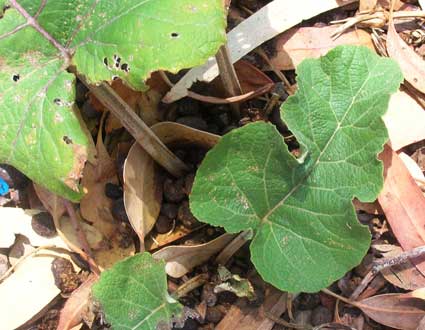
Burdock / Arctium lappa

Compositae / Asteraceae
Articum
lappa
Beggars button, Clotbur, Cocklebur, Cockle buttons, Great Burdock, Great Bur, Lappa, Bardana, Burrseed, Happy Major, Hardock, Hurrburr, Personata.
Alterative, bitter, diuretic, diaphoretic, mild laxative, anti-biotic.
Mainly the roots, but leaves can also be used.
The root contains up to 50% inulin, flavonoid gylcosides, bitter glycosides, alkaloids, polyacetylenes, tannin, volatile acids (acetic, butyric proprionic, isovaleric), non-hydrosyl acids (lauric, myristic, stearic, palmitic), polyphenalic acids, volatile oil, mucilage.
Primarily used for the treatment of skin disorders i.e. eczema and psoriasis. It is also a good blood cleanser/purifier. The bitter taste of Burdock acts as a tonic to the digestive system. It is also useful for boils and other skin conditions. The leaves can be used similarly to the root though less effective. The leaves, however, are more effective for digestive weakness and indigestion. The seeds were used by the American Eclectics for skin problems and as a diuretic. The Chinese used them for measles, sore throats, tonsillitis, colds and flu. Because of its blood purifying and alternative properties, it can be used for cancer treatments and other infections. It can be used to relieve wind distension and indigestion. It helps re-establish normal bacteria in the intestines. It helps with infections where there are skin eruptions such as measles and chickenpox. Burdock’s bitter action also activates the pancreas and so helps lower blood sugar in diabetes. The root stimulates the uterus so it is useful for a prolapsed uterus and strengthening before and after child birth.
https://www.theherbalist.com.au/herb_gallery/burdock